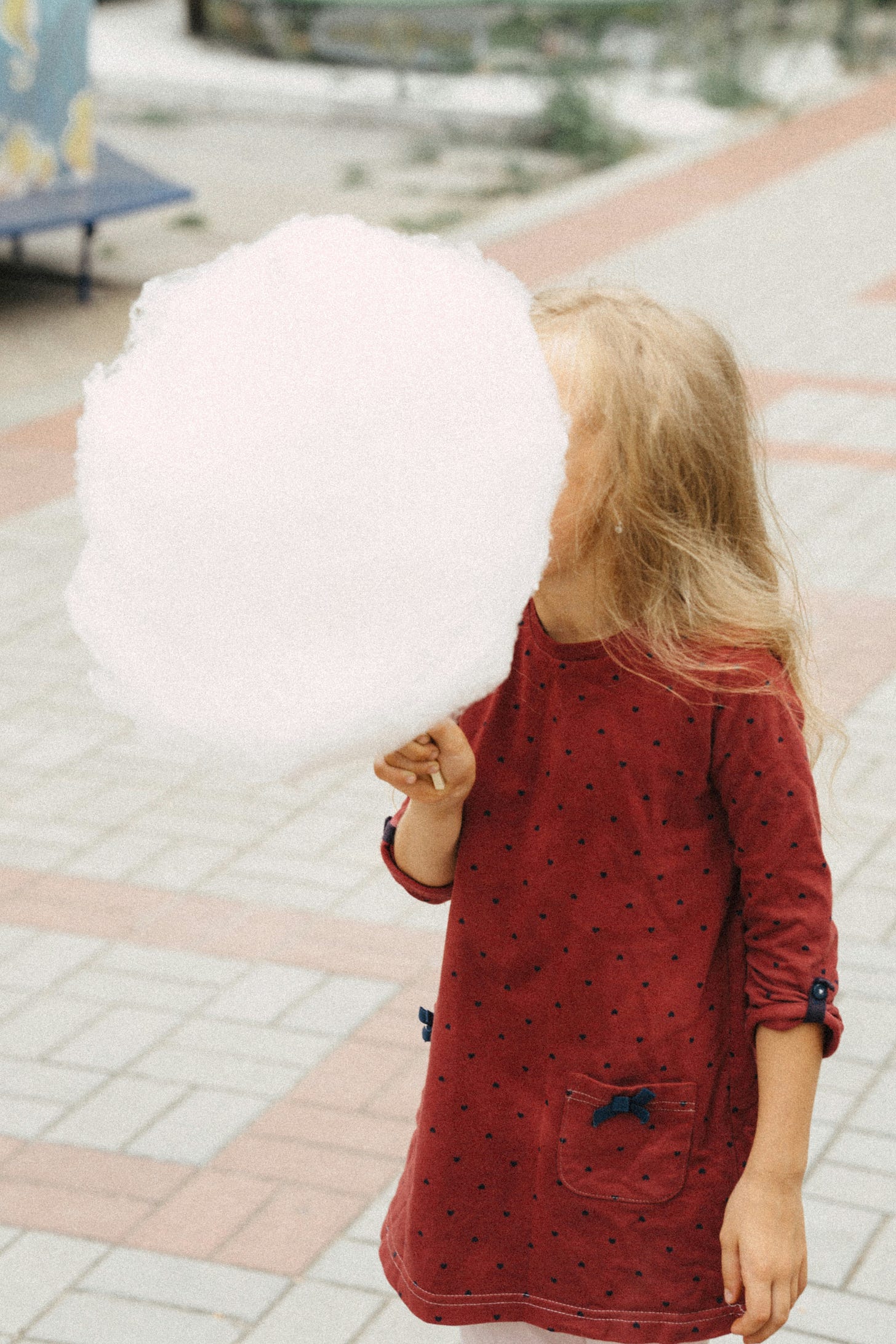Today, I want to share about how my childhood friend, Garrett made me a better writer. He probably doesn’t even know the impact he has had on me. So Garrett, if you’re reading this, thank you!
You see Garrett is blind and he also loves stories more than anyone else I know. Whenever we hung out, he would barrage me with questions about what I was writing, wanting every last details. I’d sometimes read excerpts aloud. And something began to dawn on me…I realized how sight-focused books often are.
Not just mine, but the majority of books. Of course, authors do use the other four senses, but it seemed to me, not nearly as much as sight.
So, with a slight frown on my face, eighteen-year-old Bethany, returned to her manuscripts and began experimenting.
Every time I sat down to write, I would imagine Garrett reading my book and I would then lean into the other four senses more.
This simple exercise opened my soul to sensory description.
An impending July storm was no longer “dark clouds looming on the horizon,” or even how it “tints the light green.” The calm before the storm smelled like slow-moving liquid. It felt like the precipice, a pause, an inhale before the plunge.
After the storm had passed, the earth “smelled of earthworms and ozone.” And I discovered that that green, loamy scent has a name called: petrichor.
In my neighborhood, dry, hot summer days smell of gummy tar on pavement, white cedar, and the honied scent of basswoods in bloom.
I learned that I love describing scent the most and I lean into it. Now, I never miss the chance to smell new leather, a spice, an essential oil, or a new fruit.
My mom was the same way, so I think this must be hereditary. Some ancient wisdom passed down from my Lebanese great-grandmother or something. “All the women in our family have been gifted with the Schnoz for six generations!”
Or something like that.
Writing the Other Senses: Learning from the Greats
Maya Angelou—one of my favorite memoirists—has a love affair with sound. Look at this quote from her book, I Know Why the Caged Bird Sings.
“I discovered that to achieve perfect personal silence all I had to do was to attach myself leechlike to sound. I began to listen to everything. I probably hoped that after I had heard all the sounds, really heard them and packed them down, deep in my ears, the world would be quiet around me. I walked into rooms where people were laughing, their voices hitting the walls like stones, and I simply stood still—in the midst of the riot of sound. After a minute or two, silence would rush into the room from its hiding place because I had eaten up all the sounds.”
If you want to study someone who is a master as sensory writing look to Angelou. Here is another excerpt from I Know Why the Caged Bird Sings.
“I sat in the back of the car, with Dad’s leather suitcases, and our cardboard boxes. Although the windows were rolled down, the smell of fried chicken and sweet potato pie lay unmoving, and there wasn’t enough room to stretch. Whenever he thought about it, Dad asked, “Are you comfortable back there, Daddy’s baby?” He never waited to hear my answer, which was “Yes, sir,” before he’d resume his conversation with Bailey. He and Bailey told jokes, and Bailey laughed all the time, put out Dad’s cigarettes and held one hand on the steering wheel when Dad said, “Come on, boy, help me drive this thing.”
After I got tired of passing through the same towns over and over, and seeing the empty-looking houses, small and unfriendly, I closed myself off to everything but the kissing sounds of the tires on the pavement and the steady moan of the motor.”
These two paragraphs earn their place in this story as Maya communicates setting and mood through sensory description. The words she chooses here are impeccable.
Let me break it down:
First, we learn little seven year old Maya is stuffed in the back of her father’s car with all his luggage.
The windows are down, BUT it does nothing to diminish the strong scent of food, which makes the reader think the car isn’t driving fast and it’s a warm day with little wind.
Next we learn her dad keeps calling back to check-in with her, which at first seems sweet, but then we find he isn’t interested in hearing her response. And here is where I begin to get a clue as to where the scene is going.
The subtext in the final paragraph is really what makes this whole lead up brilliant:
Up to this point we are learning about what’s happening inside the car. But then we get this sentence: “After I got tired of passing through the same towns over and over” — now our gaze is directed outward, and we see the exterior of the car mirror the happenings in the interior of the car and Maya’s own interiority. The phrase “the same town over and over” mirrors the repetition of her father’s question, “Are you comfortable back there, Daddy’s baby?” without him listening to her response.
“...and seeing the empty-looking houses, small and unfriendly…” makes me think this is a picture of Maya’s own feelings about herself at this time in her life. She is a little girl who has experienced some major trauma and has learned to cope by retreating into herself. To the outside world she looks small and unfriendly, and perhaps she feels that way about herself. This is what makes Maya such a great writer, she tells her stories, but she doesn’t moralize, she just lets them sit there, open and uncomfortable, up for the readers own interpretation.
“I closed myself off to everything but the kissing sounds of the tires on the pavement and the steady moan of the motor.”
The word kiss is both perfect for describing the sound of slow-moving tires and shifts the subtext to a new focus. It seems to hint at a deeper longing for connection and parental support within Maya’s own heart in the wake of her traumatic experience. Ending the paragraph with the word moan is so conclusive, expressing the resigned silence of her loneliness.
Words to me were magic. You could say a word and it could conjure up all kinds of images or feelings or a chilly sensation or whatever. It was amazing to me that words had this power. - Amy Tan
So, what are the right words?
I don’t have a degree in creative writing. I’m just a person who has spent the last 20 years of her free time playing with words to see what they make. So, this is just my opinion. But I think no word in a dictionary is inherently better than another until it is applied to the context of your story. And you know you’ve selected the right sensory word when it also supports the subtext.
In short: the right word earns its place on the page by doing more than one thing.
Conclusion
What do you think? Do you agree? Disagree? What is your favorite of the five senses to read or write?
Next Time
I’ll be sharing a narrated excerpt from my short story The Wondrous Criminal Behavior of Edith Liddell which releases June 30th in the Wondertales Anthology!
I also have an update about the developmental edits for my novel. Let’s just say reading through the edits was equal parts overwhelming and exciting. But more on that next time.
Light,
Bethany





This is fantastic! My thanks to Garrett for helping you explore the other senses and then teaching us to turn to them as well! I never quite thought about this in this context and now I think I will not be able to 'unsee it' when I write.
Thinking back to my own writing, touch is very big for me. I always mention textures, smoothness or roughness of something, the way the fabric meets the body. I loved the examples you provided, your own and Angelou's. Both so inspirational and simply beautiful writing.
Great post! Thank you for this.
I’m a sucker for sound. Years ago, I tried my hand at screenplays and you’re limited to sight and sound. I do enjoy writing a novel where you can work in other senses, especially in situations where a character is deprived of one or more senses.